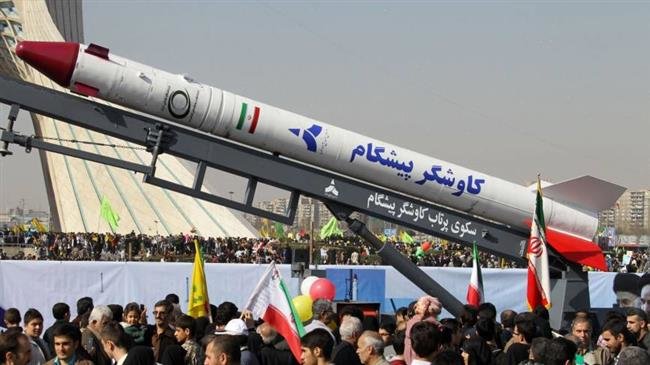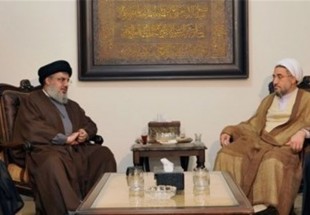VIDEO: Islamic Republic of Iran launches unique satellite into space


Iran has launched a domestically-built satellite into space with an aim to collect environmental information to boost the country’s forecasting system; however, technical problems that occurred during the final stage of the launch prevented the spacecraft from reaching orbit.
Minister of Information and Communications Technology Mohammad Javad Azari Jahromi tweeted on Tuesday that the first and second stages of the space mission had been performed successfully, but that the Simorgh satellite carrier had failed to accelerate to orbital speed in the third stage.
“The Payam (Message) satellite was successfully launched this morning aboard the satellite carrier. But the satellite unfortunately failed to be placed in orbit in the final stage,” said the minister.
Azari Jahromi, however, stressed that Iran was preparing to launch another Low-Earth Orbit satellite, named Doosti (friendship).
“This time, with extra efforts, we are going to show the world that Doosti will be a success,” he added.
An official of the Iranian Space Agency (ISA) says Iran is the sole country in the region with its own satellite launchers.
Iran launched its first locally-built satellite, Omid (Hope), in 2009. The country also sent its first bio-capsule containing living creatures into space in February 2010, using Kavoshgar (Explorer)-3 carrier.
In February 2015, Iran placed its domestically-made Fajr (Dawn) satellite into orbit, which is capable of taking and transmitting high-quality photos to stations on Earth.
Iran’s Foreign Ministry has rejected claims ascribing military aspects to the country’s ongoing satellite projects
Prior to the launch, the United States had warned Iran against the mission, claiming that any such project ran counter to Iran’s 2015 nuclear deal with world powers as well as the relevant UN Security Council resolution that endorsed it.
Iran responded by giving assurances that there is no military aspect to its satellite activity and that its missile tests are in no way banned under the nuclear agreement nor the UNSC resolution, because the missiles are not designed to deliver nuclear warheads.
‘Message to enemies’
In an interview with Press TV, Jason Unruhe, a political commentator, described such Iranian satellite launches as a “clear message” to the enemy camp, which has long sought to hinder the Islamic Republic’s scientific progress besides keeping the country under economic pressure.
He said, “The Western imperialist powers have attempted to hold back Iran, tried to withhold information, withhold technology, withhold needed aid and made countless attempts to sabotage the country, sabotage its economy.”
A campaign, the analyst added, has been underway to “destabilize and destroy Iran, not just on an economic level, but on an academic and technological level as well.”
“What this launch does is send a very clear message to that same community [that] ‘you have not stopped us, we have continued to develop, we have continued to reach new high scientific achievements despite everything that you have done to sabotage us in our development,’” he said.






